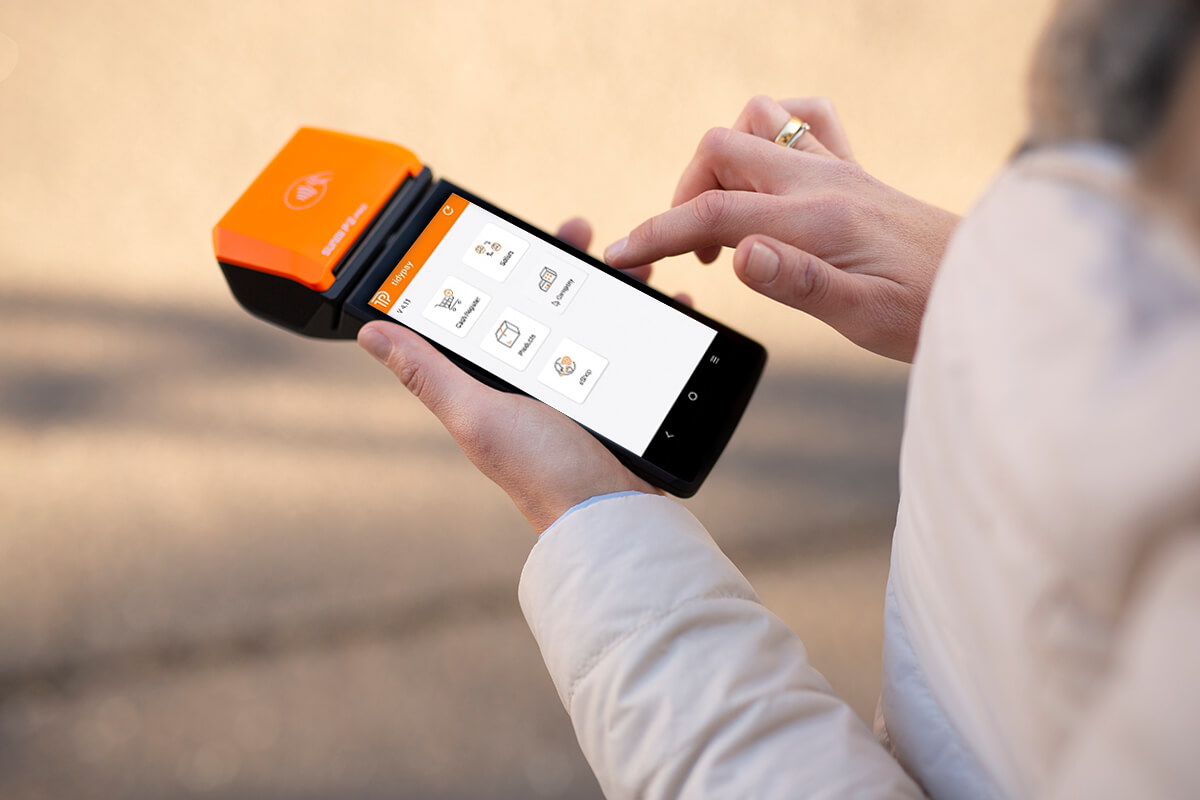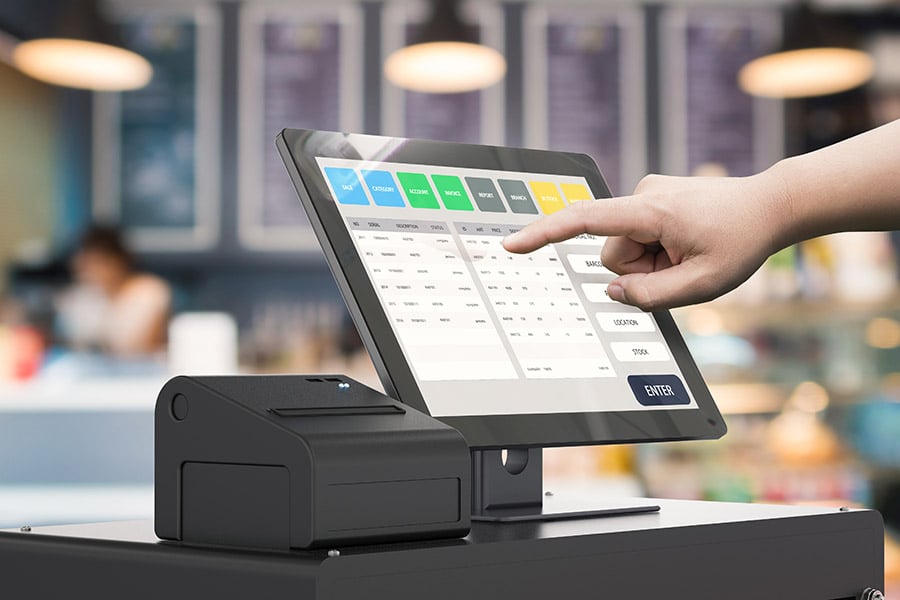The Single Strategy To Use For Point Of Sale Software
The Single Strategy To Use For Point Of Sale Software
Blog Article
Some Ideas on Clover Pos You Should Know

POS Systems: Retail Point-Of-Sale Solutions Streamline Deals
Point Of Sale Software for Dummies

Hardware Components of a Point of Sale System What makes a POS system tick? It's not simply software application; the hardware plays a starring role. Think about it as the body to the software's brain. Without the right hardware, even the most advanced POS software application is simply a pretty face. Essential POS Hardware So, what are the must-haves? Let's simplify. The main processing system, often a computer system or tablet, is the heart of the operation. The screen or touchscreen display enables staff to interact with the system. A barcode scanner speeds up the checkout procedure. Remember the days of manually entering each code? The trusty invoice printer offers consumers with a record of their purchase. A cash drawer keeps your cash safe and organized. A card reader permits customers to pay with credit or debit cards. Diving Deeper: Beyond the Fundamentals But wait, there's more! Depending on your organization, you may need specific hardware. For example, a dining establishment might incorporate kitchen area printers to relay orders, while a store might utilize label printers for item tagging. Ever question how your regional bakery quickly prints those delicious-looking labels? Selecting the Right Hardware: A Balancing Act Picking the best hardware isn't just about purchasing the most costly devices. It's about discovering the sweet spot between functionality, durability, and spending plan. A small company simply beginning may choose for a check here more fundamental setup, while a high-volume merchant will require robust, high-performance devices. Is it better to buy new or utilized? Consider your choices thoroughly. A brand-new system provides the most recent technology and service warranty defense, however a refurbished system can conserve you cash. The Future of POS Hardware What does the future hold? Anticipate to see even more integration with mobile phones, biometric scanners for worker authentication, and advanced analytics control panels showed on bigger, clearer screens. Think of a world where inventory is instantly upgraded in real-time as products are scanned-- a world where you can track your very popular product from anywhere in the world. The possibilities are limitless, and the hardware is continually progressing to fulfill the needs of today's organizations. Are you ready to update your point of sale system?
Software Features and Capabilities: The Heart of Your POS System
Ever watch an experienced barista glide through a hectic early morning rush? Their secret isn't just caffeine; it's a seamless dance with their POS system. The software is the conductor of your business symphony, orchestrating whatever from sales to stock. However what notes should you be listening for? What abilities genuinely matter in today's market?
Stock Management: Beyond Counting Beans
Forget spreadsheets that haunt your dreams. Modern POS systems offer real-time stock tracking, signaling you when your stock of artisanal coffee beans dips precariously low. Consider it as a digital guardian angel, avoiding those uncomfortable "Sorry, we're out!" moments to customers. What if you could likewise forecast need based on historical data? Lots of systems now offer forecasting tools, an effective weapon versus overstocking and lost sales. This assists prevent the predicament of running out of popular items or building up excess stock of slow-moving products, both of which can constrain capital and area.
Sales Reporting and Analytics: Decoding the Data
Sales information is the new gold, and your POS system is the miner. Forget simply knowing just how much you offered today. Dive deep into the information to reveal patterns, determine your best-selling items, and understand customer behavior. Which menu item pairs perfectly with the everyday special? Which promo resonated most with your clientele? These insights are not simply fascinating; they're actionable intelligence. Without reputable sales reporting, browsing the intricacies of service decision-making becomes like sailing without a compass, increasing the opportunity of mistakes and missed opportunities.
Consumer Relationship Management (CRM): Building Bridges, Not Walls
Remembering a routine client's name and favorite order is lovely, however scaling that personal touch is tricky. POS systems with CRM capabilities allow you to track client purchase history, choices, and even birthdays. Think of immediately offering a discount on their birthday-- a small gesture that promotes commitment and encourages repeat business. There is the possible snag of poor data quality, which can lead to inaccurate customer profiles and inefficient marketing efforts.
Payment Processing: Simplifying the Transaction
The checkout experience can make or break a sale. Smooth integration with various payment approaches-- charge card, mobile wallets, even copyright-- is non-negotiable. Can your system deal with split payments? Does it use safe tokenization to secure customer data? A cumbersome payment process resembles striking a sour note in your business symphony, potentially disrupting the entire efficiency. Guaranteeing compatibility with developing payment technologies and adherence to security requirements are vital for maintaining client trust and operational efficiency.
Staff Member Management: Keeping the Team in Sync
From clocking in and out to managing authorizations and tracking performance, staff member management features streamline operations and improve accountability. Is scheduling a nightmare? Numerous POS systems offer incorporated scheduling tools, enhancing staffing levels based upon predicted need. A typical obstacle that is frequently neglected is the obstacle of incorporating staff member management functionalities with payroll systems, which can result in mistakes and inefficiencies in wage calculations.
Advanced Characteristics: Leveling Up Your Operations
- Table Management: Perfect for dining establishments, this function allows you to envision your dining space, track table status, and handle bookings.
- Loyalty Programs: Reward your best customers and encourage repeat organization with integrated commitment programs.
- Online Buying Combination: Perfectly incorporate your POS system with online ordering platforms to broaden your reach.
Choosing the right POS system is about more than just functionality; it's about discovering a partner that can grow with your organization. Consider your existing requirements, expect future development, and do not be afraid to ask the tough concerns. The right software application can change your service from a chaotic cacophony into a harmonious masterpiece.
Industry-Specific POS System Applications
Consider the local bakeshop, dynamic with morning clients craving fresh croissants. A generic POS system might deal with deals, however can it handle complex dishes, track ingredient inventory, or automatically change production schedules based on sales data? Most likely not. That is where the beauty of industry-specific POS systems shines.
Dining establishments and Hospitality
For bustling dining establishments, speed and accuracy are vital. How lots of times have you seen servers juggling orders, modifications, and splitting costs, all while trying to offer exceptional service? A dining establishment POS system enhances these processes, permitting for table management, kitchen order tickets, and even online ordering integration. These systems often include functions like ingredient-level stock tracking, important for managing food costs and decreasing waste. Ever wonder why your preferred meal is in some cases unavailable? It might stem from a lack of appropriate stock management.
- Table Management
- Kitchen Order Tickets
- Online Ordering Integration
- Ingredient-Level Stock Tracking
Retail Solutions
Retail, with its diverse inventory and consumer interactions, demands a various set of tools. Picture a boutique clothing store having a hard time to keep track of sizes, colors, and seasonal collections utilizing a fundamental checkout system. An industry-specific retail POS system uses features like barcode scanning, client commitment programs, and detailed sales reporting. These systems can even integrate with e-commerce platforms, providing a smooth omnichannel experience for consumers. Did you know some retail POS systems can predict future sales patterns based upon historic information? Now that is powerful!
The Perils of a Mismatch
Picking the wrong POS system can create significant functional obstacles. A clothing boutique utilizing a dining establishment POS, for instance, would find it unsuitable for managing stock with sizes and colors. The absence of correct reporting and analytics could result in mistaken purchasing decisions and lost earnings. The result could be comparable to attempting to fit a square peg in a round hole.
Key Considerations
Choosing an industry-specific POS system requires careful assessment. Think of your business's special needs and functional workflows. Does the system integrate with existing software? Does it provide the essential reporting abilities? Is it scalable to accommodate future growth? A well-chosen POS system is not simply a deal tool; it's a tactical property that can drive efficiency, enhance customer fulfillment, and eventually, improve your bottom line. Remember, it is an investment in your business's future, not simply a cost.
Security Considerations for Point of Sale Systems
Ever heard the tale of the mom-and-pop shop that lost whatever since of a single, ignored security defect in their POS system!.?. !? It's a cautionary tale, and it highlights an important element frequently overshadowed by the appeal of elegant functions and structured operations. The truth is, a POS system is only as good as its security. What great is a system that crunches numbers in a flash if it enables lawbreakers to swipe client's information simply as rapidly?
The Vulnerability Minefield
The digital landscape is a battlefield. Every POS system, no matter size or sophistication, is a potential target. Are you truly got ready for the hazards hiding around the corner? The genuine pinch comes when you discover that your out-of-date software application has a gaping hole that hackers can make use of, turning your service into an unwitting accomplice in identity theft. The trouble is that hackers are crafty and are always altering their strategies.
Common Security Spaces and Expert Tips
- Weak Passwords: "Password123" isn't cutting it. Use strong, special passwords for all POS system accounts and change them routinely. Two-factor authentication is a must.
- Unsecured Networks: Your Wi-Fi is like leaving the front door open. Protect your network with strong encryption (WPA3 if possible) and consider a separate network for your POS system.
- Outdated Software: Software application suppliers patch security holes all the time. Failing to upgrade resembles welcoming problem. Establish automatic updates or schedule routine maintenance.
- Worker Training: Your personnel is your very first line of defense. Train them to recognize phishing attempts, safeguard passwords, and report suspicious activity.
Data File Encryption: Your Guard Versus the Dark Arts
Think of information file encryption as a secret code. It scrambles delicate information, like credit card numbers, making it unreadable to unapproved users. Without file encryption, your customers' monetary details resemble sitting ducks, ripe for the picking by cybercriminals. It's not practically safeguarding your consumers; it's about protecting your reputation and avoiding significant fines.
PCI Compliance: The Rulebook You Can't Neglect
If you accept charge card, you're bound by the Payment Card Market Data Security Standard (PCI DSS) It's a set of security requirements designed to protect cardholder data. Stopping working to comply can lead to fines, charges, and even the loss of your ability to process credit card payments. It's a headache, yes, but it's a required one. Think about PCI compliance as the expense of doing company in the digital age.
Consider this: every transaction processed through your point of sale is a potential entry point for destructive actors. By carrying out robust security measures, you're not simply safeguarding your organization; you're protecting your consumers' trust and ensuring the long-term viability of your operations. The security of your POS system isn't simply a technical problem; it's a company crucial. It requires constant alertness, proactive procedures, and a dedication to remaining ahead of the curve.